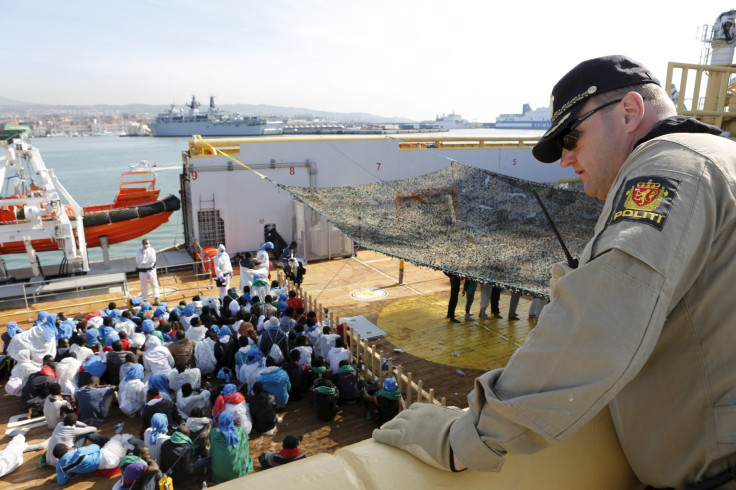Mediterranean Migrant Crisis: Refugees At Record Level Of 137,000 In First 6 Months Of 2015, UN Report Says

The number of refugees who crossed the Mediterranean Sea to reach Europe has reached a record level of 137,000 in the first six months of the year, the United Nations refugee agency said in a statement on Wednesday. This is an increase of 83 percent from the same period last year, and the numbers are expected to rise, the report added.
The three largest nationalities of the refugees were Syrians, Afghans and Eritreans, and they are entitled to be resettled according to international law. The countries that saw a major inflow of refugees were Greece, Italy and Malta.
Out of the refugees who landed in Greece and Italy, one in three were Syrians, who were “almost universally deemed to qualify for refugee status or other forms of protection,” the U.N. said in the statement.
The move indicates that the migrants are fleeing war or persecution, making “the Mediterranean crisis primarily a refugee crisis,” the New York Times reported, citing the U.N.
"As Europe debates the best way to deal with the rising crisis on the Mediterranean, we must be clear: most of the people arriving by sea in Europe are refugees, seeking protection from war and persecution," U.N. High Commissioner for Refugees António Guterres said in the statement.
The news of the rising number of migrants come against the backdrop of the European Union countries denying a proposal that would have created mandatory quotas and helped spread the tens of thousands of migrants across the 28 member states. Instead, the EU only vowed that it will “agree by consensus” by the end of July about relocating 40,000 people between the member countries.
The EU countries have also signed a global refugee treaty that would compulsorily require providing refuge to migrants fleeing war or persecution. However, this may exclude many West African refugees, who flee their countries to escape hunger and unemployment.
According to the Times, Sweden and Germany accepted the most number of refugees last year. Swedish Foreign Minister Margot Wallstrom reportedly said that it was absolutely necessary that Europe finds a way to handle the brewing crisis.
“In the end it will create tensions; it will undermine the whole idea of us working together in the European Union to show solidarity towards each other to help to share the costs and responsibilities,” she said.
Between January and March this year, 479 refugees and migrants drowned or were reported missing in their attempt to cross the Mediterranean, compared to 15 in the same period last year. In April, this number rose significantly as 1,308 refugees drowned or went missing in a series of accidents in the Mediterranean. In May, the number fell to 68 while in June, it reduced to 12, the U.N said in the statement.
"The decline in people drowning over the past two months is encouraging; a sign that with the right policy, backed by an effective operational response, it is possible to save more lives at sea," Guterres said, adding: "Nonetheless, we must stay vigilant. For the thousands of refugees and migrants who continue to cross the Mediterranean every week, the risks remain very real."
© Copyright IBTimes 2025. All rights reserved.






















